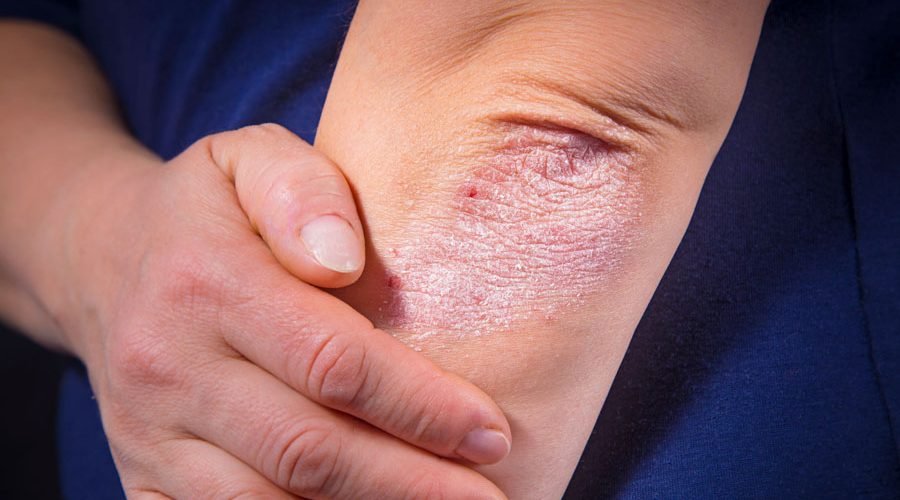Eczema and psoriasis are both very common skin conditions. They are similar in that they are both inflammatory skin conditions, and both tend to be chronic and subject to flare-ups. However, they do tend to manifest a little bit differently. There is a genetic component to them both, and they can both be triggered by various internal and external factors – like allergens or stress. Skincare is incredibly popular today; in fact, it is a global market. However, if you have a skin condition like eczema or psoriasis, then coming up with good skincare practices can be tricky, which is why we have put together the following tips, so let’s take a look.
Table of Contents
Learn More About The Condition
Firstly, you do need to learn more about the condition itself. If you have only recently been diagnosed, then you will need to do some research into the condition to learn more about the symptoms that you can expect. There are a number of great resources out there, like this guide to psoriasis from Patient. They also have resources on a whole spectrum of skin disorders and other medical conditions, which can prove to be invaluable.
Avoid Hot Showers & Baths
There are several things that can exacerbate eczema and psoriasis, and one of those things is exposure to hot water. While a lot of people do enjoy hot baths and showers because they are often seen as relaxing. If you have a skin condition, then exposing your skin to these conditions can actually make your skin drier and further aggravate your skin. Obviously, cold showers or baths are not necessarily nice or comfortable. Ideally, you should aim for lukewarm temperatures, where possible.
Moisturise Regularly & When The Skin Is Damp
Regular moisturising is incredibly important if you have a dry or pruritic skin condition. It helps to calm the inflammation and lessen the itch. Most people with eczema or psoriasis will need to be moisturising multiple times a day, at least every morning and every evening. In addition to this, you should also always moisturise when your skin is damp. Ideally, you should be aiming to moisturise within two minutes of getting out of the shower or bath. This is because when your skin is damp, your pores are open, and your skin is far more likely to retain moisture.
Try Not To Scratch Or Pick Your Skin
Dealing with an itchy skin condition can truly be maddening. Scratching or picking your skin provides momentary relief and helps to make your skin feel better for a short time. However, it ultimately makes your skin worse. It can spread inflammation, damage the skin’s barrier, make it bleed and open it up to further infection. This is why you need to resist temptation and leave your skin alone. Sometimes, this is easier said than done because a lot of people find themselves scratching without even having made a conscious decision to do so. If you truly cannot resist the urge, then there are a number of other products that you can try that help to provide relief without damaging your skin.
Read The Ingredients & Keep Things Simple
Lastly, one of the best pieces of skincare advice when it comes to managing a skin condition is always to be vigilant about the things that are coming into contact with your skin. There are a number of products that come into contact with your skin on a daily basis, from lotions, moisturisers and other skincare products to your clothes and bed sheets. A lot of people tend to discount their laundry detergent as a skincare product, but it can really make a difference. One of the easiest ways to ease a flare-up is to ensure that you are cleaning your clothes with hypoallergenic and fragrance-free detergents; it might also be advisable to avoid fabric softener completely too.
When choosing other skincare products, you should always read through the ingredients. Again, fragrances and other common irritants should be avoided. There are some ingredients that can be beneficial to people with eczema or psoriasis-like ceramides, vitamin b3, hypochlorous acid and niacinamide. Realistically, it is better to keep things simple. Gentle products are better by far. It can be tricky, and truthfully it often comes down to trial and error.
In Conclusion
Living with a skin condition can have a huge effect on your mental health as well as your physical health because it can affect your appearance, which in turn takes a toll on your self-esteem. Unfortunately, there is no cure for either condition; however, it can be managed with the right skin care techniques. Both conditions are characterised by flare-ups. In addition to managing the condition externally, you should really think about implementing some stress management techniques too. Stress is often a big trigger that can play a huge part in worsening skin conditions and creating flare-ups.





